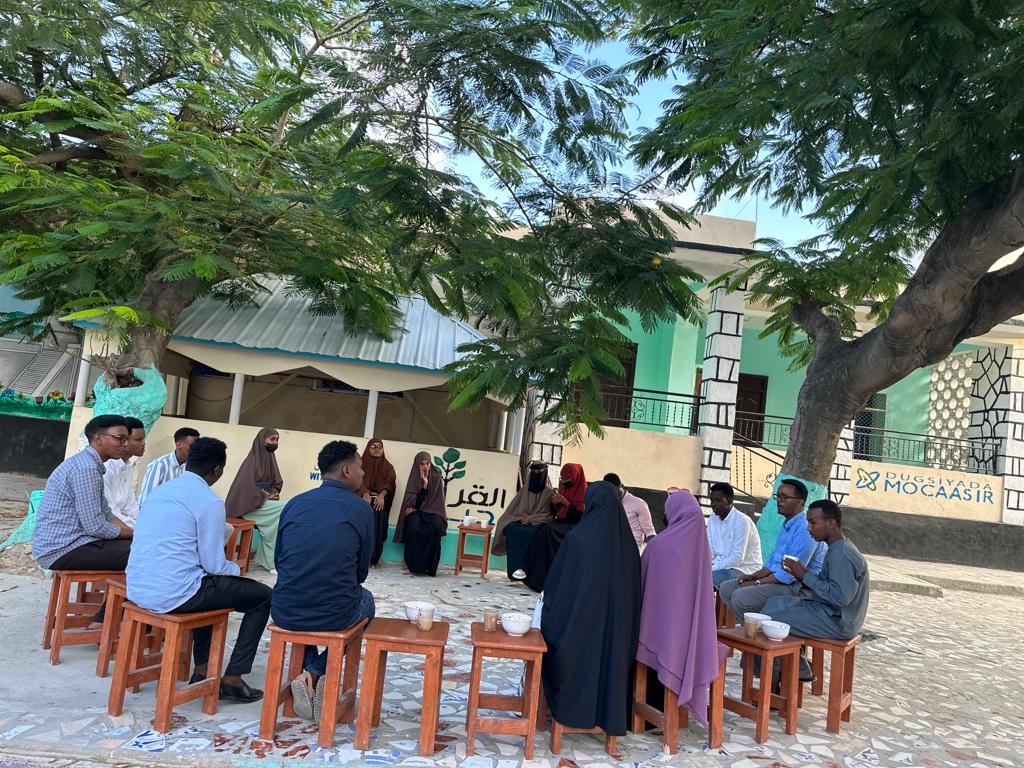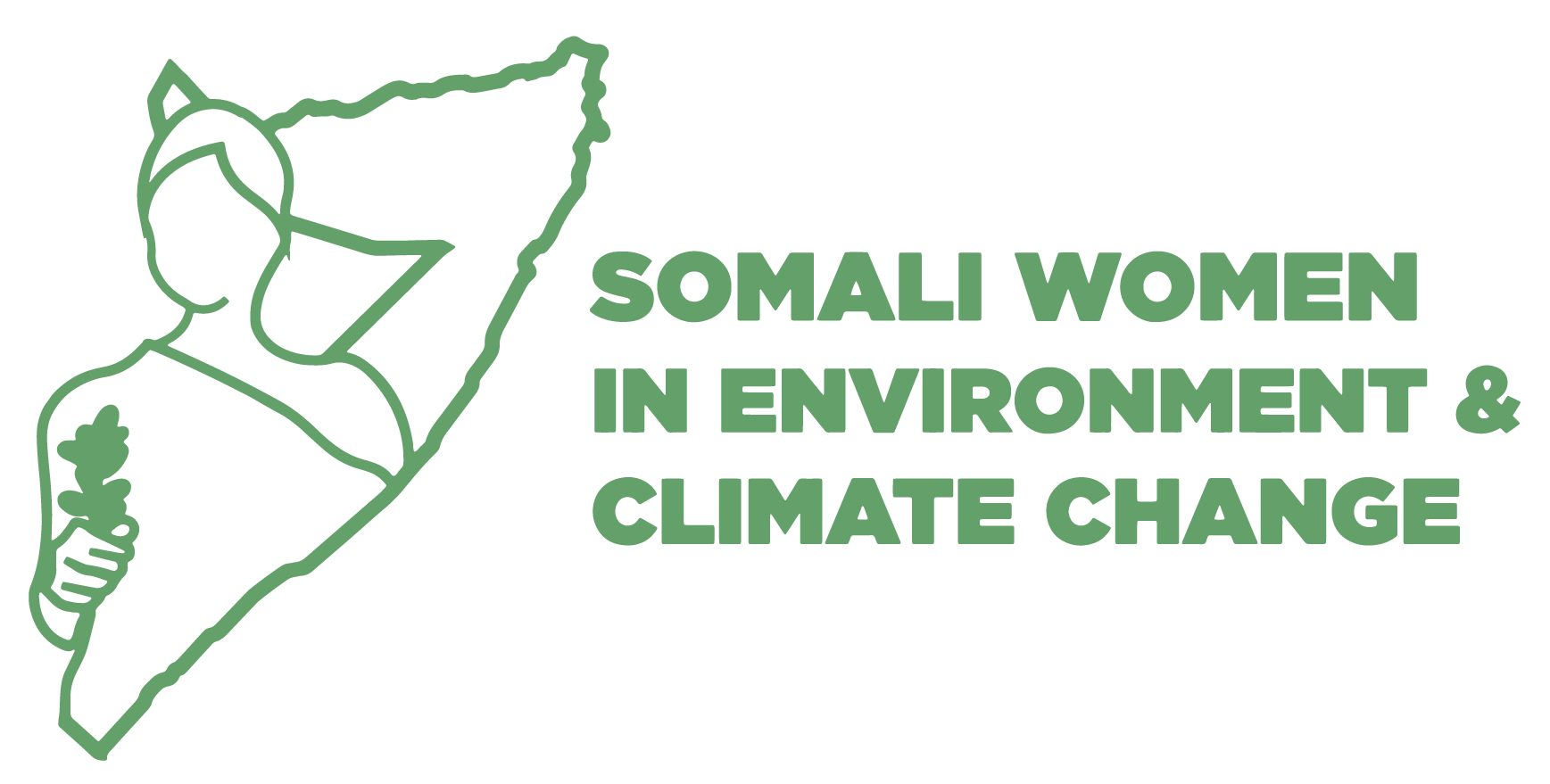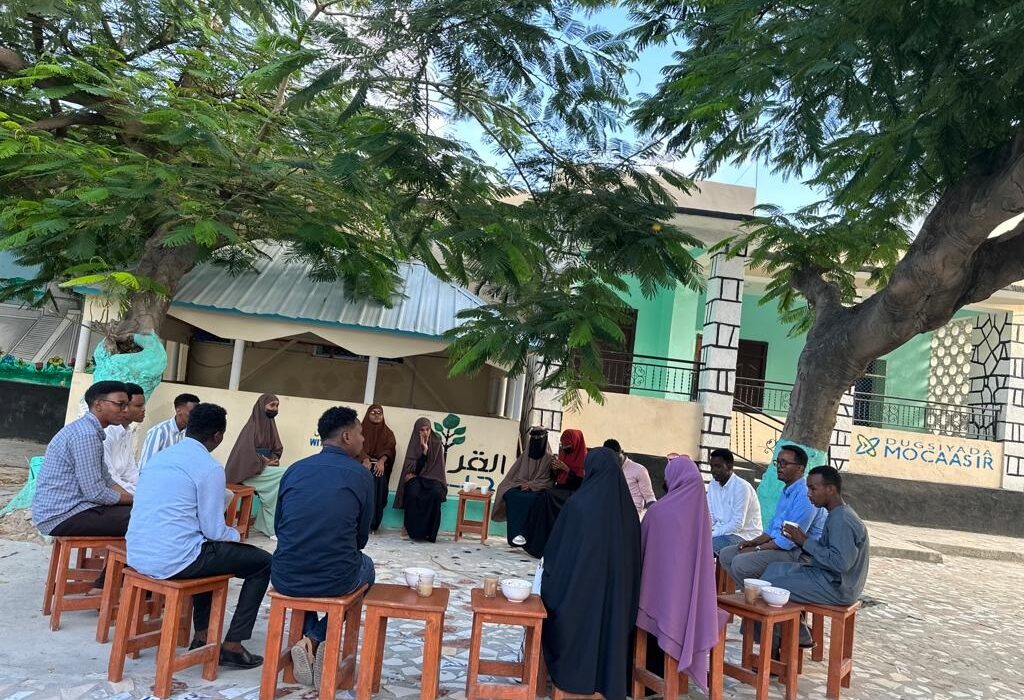SWECC participated as special guests at the Daango iyo Deegan program organized by Action for Environment. Titled “Women’s Leadership in Sustainable Development,” emphasized the significant contributions of Somali women in shaping effective, equitable environmental policies. Women’s leadership is essential for shaping a sustainable future in Somalia. Women often serve as primary caregivers and community leaders, making them uniquely positioned to drive environmental initiatives.
During the discussion, we highlighted examples of women’s leadership in sustainability, such as Wangari Maathai’s Green Belt Movement in Kenya, which mobilized women to plant over 51 million trees. In South Africa, women-led renewable energy initiatives provide sustainable solutions, aligns with the discussions our director Najmo Khalif emphasized for women to effectively lead in sustainable development, they require education, access to resources, strong networks, policy advocacy, and cultural recognition. Advancing these needs allows women to enhance their impact, driving meaningful change in their communities and fostering a more sustainable future.
Women in Somalia play a pivotal role in producing eco-friendly products, contributing significantly to both sustainability and economic empowerment. They utilize traditional knowledge and local materials to create sustainable goods like tote bags, natural soaps, organic fertilizers and water conservation—help combat climate change while ensuring food security for their communities. Through these initiatives, Somali women are leading the way in fostering a greener, more sustainable future.
One key point that emerged from the discussions was the need for inclusive policy-making. Women often have a deep understanding of local ecosystems and the challenges their communities face. When they participate in decision-making processes, policies become more reflective of the realities on the ground, resulting in improved outcomes for entire communities.





